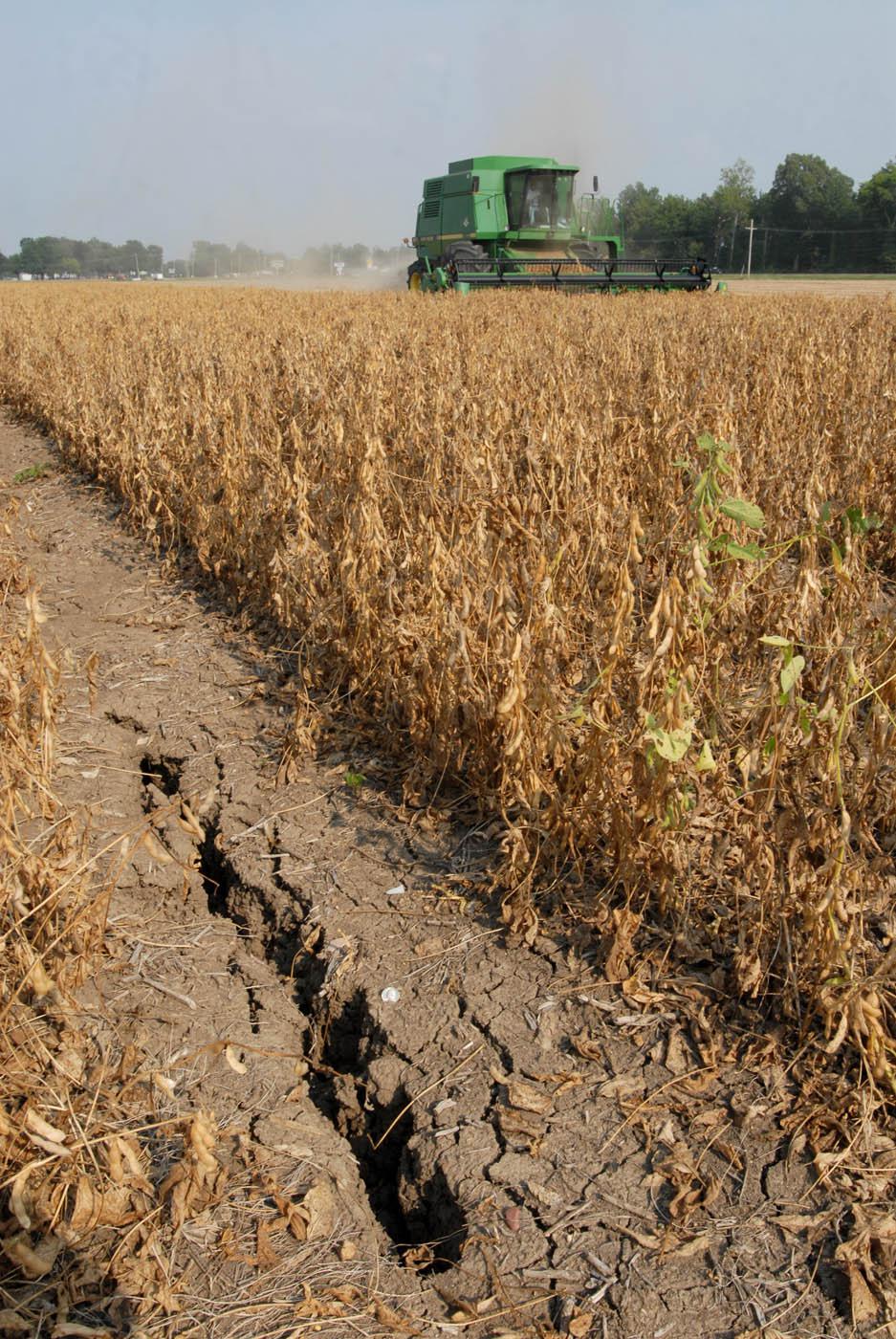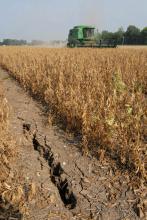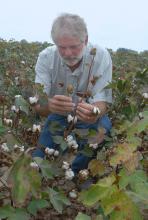Information Possibly Outdated
The information presented on this page was originally released on August 24, 2006. It may not be outdated, but please search our site for more current information. If you plan to quote or reference this information in a publication, please check with the Extension specialist or author before proceeding.
Row crops suffer from drought, heat
By Robert H. Wells
Delta Research and Extension Center
STONEVILLE -- Rain came for Mississippi's row crops in 2006; it just did not come when producers needed it most.
“The key is timing,” said Bart Freeland, a physical scientist for the U.S. Department of Agriculture's weather facility in Stoneville.
“We got a lot of rain early in the season, but when it came time for filling pods and bolls in June and July, many producers didn't get the precipitation they needed,” Freeland said.
Freeland, based at Mississippi State University's Delta Research and Extension Center, also said rainfall has been very sporadic across the Delta this summer.
“Rainfall events basically during June and July were very isolated in nature,” Freeland said. “For instance, in June 2006, Stoneville and Yazoo City recorded less than two inches for the month while areas in Bolivar County recorded over six inches of rainfall in a single event.”
Steve Martin, an MSU agricultural economist at the center, said the lack of rain in the later growing months will cause an increase in production costs for all crops.
“Certainly between the drought and the heat, crops were a lot more expensive to produce because people had to irrigate more,” Martin said.
Compounding this problem is the higher cost of diesel fuel, which has increased about 40 percent this year and has nearly doubled in price since 2004, and the potential for reduced yields in many crops from the hot, dry weather.
MSU soybean specialist Dan Poston said soybeans are seeing some of the biggest losses this season, especially in fields that were not irrigated or where irrigation was mismanaged.
“Some people have just tilled their field under and didn't even harvest,” Poston said. “I've also heard of fields harvested with as low as 3 to 5 bushels per acre yield. It's hard to justify putting a combine in those. It would cost producers more to run the combine through the field than they'd get out of it.”
Poston said he estimates the overall state average for soybean yields will be lower by about 6 bushels from last year.
Cotton yields also are expected to be down in the state, especially in non-irrigated, or dry land, cotton.
“A lot of non-irrigated cotton has just crashed,” said Lyle Pringle, an MSU associate agricultural engineer who researches irrigation in cotton and corn production systems.
“It is wilted, and it generally quit developing sooner than its irrigated counterpart,” Pringle said.
“You don't have the growth potential when you don't have the water there for the cotton to continue to grow and continue to put on new fruit,” Pringle said. “Also, I believe we lost some fruiting sites due to the heat. Some small squares actually turned brown. The other thing is we're trying to mature these bolls during this heat, and I think it's going to negatively effect potential growth and probably size.”
Pringle said corn seemed to miss some damage caused by the late summer heat.
“I don't think the heat affected the corn as much as it's affected the cotton because the heat didn't really start getting that hot until towards the end of July, after the corn had matured,” the researcher said.
MSU rice specialist Nathan Buehring said rice, unlike other crops this season, actually may do well,
“We're in a flooded culture, so we're not going to have as much of a hit as soybeans or cotton or other crops,” Buehring said.
The problems Mississippi rice producers have faced this summer are finding water sources for flooding and kernel blanking.
“There is the potential, due to the heat that we've had, to have blanking and cause reduced yields, but we haven't got in enough rice to really know if that's going to be an effect of it,” Buehring said.
Despite the heat, Buehring said he is optimistic about this year's rice crop.
“I don't know if we'll necessarily break any records, but we do need a good year yield-wise and price-wise,” Buehring said. “Prices will need to be good because producers are going to need rice to pay a good bit of bills this year.”








